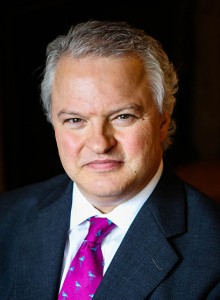
Our ‘Meet the Mediator’ feature continues with Bill Marsh and will feature a different mediator in each issue. Here the mediators share suggestions on maximising potential for reaching a settlement (in their opinion), strategies or techniques they find useful in breaking a deadlock, a mediation they will always remember and why and some of the changes they have witnessed in the mediation landscape during their time practising in the field.
How does your background as a solicitor benefit your work as a mediator?
It really helps, not only in understanding some of the complex legal issues which arise, but also very much in appreciating the pressures which parties experience from being in litigation or arbitration for seemingly endless periods of time. Those pressures often drive out any belief that resolution is possible, and so it is important to engage with that.
What led you to move into mediation?
I have been privileged enough to be involved with commercial mediation in the UK since its very start, in 1990. I came out of private practice as a corporate lawyer, and immediately found the creativity and very immediate dynamism of mediation hugely appealing. In addition, in those early days we had to make the intellectual case for mediation to a largely sceptical legal profession, which was a particularly enjoyable challenge!
What type of cases have you been involved in as a mediator?
I mediate a huge range of cases. The majority are commercial disputes – involving areas as diverse as oil and gas, banking, IP, pharmaceuticals, insurance, etc. A growing proportion of my caseload is international, and happily it seems that the UK has a reputation internationally for producing good mediators – long may that continue!
In addition, I have also over the last 10-15 years become involved in mediating religious, political and environmental issues. For example, I am presently involved in mediating a major environmental conflict in southern Europe. These are not one-day engagements, but require extensive commitment over a number of years.
What are one or two of the mediator techniques or strategies which you find particularly useful in breaking a deadlock?
Impasse should not be a surprise, it is often an inevitable by-product of settlement attempts. The recognition that it is (1) normal and (2) not necessarily terminal is a critical starting point. It is also important to understand what has brought it about – is it differing risk analyses, mutual antipathy, a failing in the process, etc? The approach to resolving it depends on what is causing it. There are plenty of “tricks of the trade” – such as blind bids, etc – which can be very helpful, but these can only be effectively deployed in the light of what is causing the impasse.
Disputes can often be quite complex and multifaceted. To what extent do the various elements – such as industry, size of company, jurisdiction of conflict, etc – play a role in your approach?
Culture plays a big part in international mediations. Parties may have differing expectations of the mediation process, and the approach the mediator will take, so it is important to understand these expectations at the outset. That said, there is a relatively homogenous “international business culture”, which also often prevails at mediations.
One particular area of impact is in decision-making. Larger organisations and institutions can sometimes have relatively lengthy or cumbersome decision-making processes. If their counter-party in mediation is a smaller private business which takes decisions quickly, then the mediator will need to manage that disconnect.
Is there a mediation that you will always remember? What difficulties or examples of excellence did it possess and how did you learn from these?
There are many! Mediation is fundamentally a huge privilege. The all-nighters (fewer in number these days) tend to stick in the mind. But the most memorable are ones where a party or parties have shown real courage or grace in the way in which they have responded to challenges. Humanity is often laid bare under the pressure of mediation.
Most of all, I have learned over the years not to give up. The parties are paying for (amongst other things) our tenacity. Be the last to leave.
Do you have any tips or suggestions for participants on how to maximise the potential for reaching a successful settlement?
- Prepare well – strip it down to the big, and impactful, points
- Make your private risk analysis serious and realistic, and seek the mediator’s input into it.
- Engage courteously where possible, because a rude manner can detract from a powerful argument.
- Use your client’s strengths. They may be a better negotiator than you!
- Let the client judge any offer before you do. They will often have their own private reasons for rejecting or accepting it.
What’s the best part of your job?
The people. By a mile. I am continually impressed by people’s willingness to engage in serious dialogue with those with whom they profoundly disagree. It’s not easy, and we should respect all who try.
What changes have you seen in the field in the time you’ve been practising as a mediator? Have these changed how you mediate?
The growing familiarity with mediation over the 30 years I have been a mediator has certainly changed things. Parties and advisers are more savvy about the process now, and will often have their own ideas about how it should go. Some of these are helpful, some less so!
When you are not mediating what do you like to do?
Go trout fishing. It goes some small way to restoring my sanity.